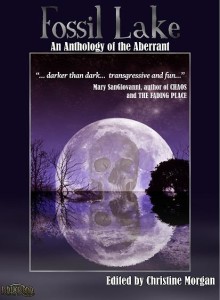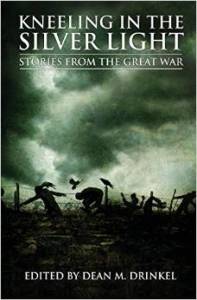2014 has brought me an odd mixture of success beyond expectation and abject failure.
 My goals for 2014 were to duplicate my short story sales for 2013 (six stories, five under my real name) and to complete a novel.
My goals for 2014 were to duplicate my short story sales for 2013 (six stories, five under my real name) and to complete a novel.
Over the past year, I’ve sold eight speculative fiction short stories under my own name, and an additional two stories and a novella in another genre under a pseudonym.
And I haven’t come anywhere close to completing a novel, though I have two partial attempts and several outlines.
In 2015, my goal is to choose my battles.
I’ve already set parameters for my short story submissions. As a rule, I submit only to paying markets. (I do allow for exceptions—for example, if proceeds from sales go to support a charity I feel passionate about, I’m willing to write a story in lieu of a donation to the cause). But overall, at this point in my career, I feel my writing is strong enough that I should be earning money in exchange for my work, not just a free copy of the finished product.
This statement is not to denigrate anyone who is writing as a hobby. I spent many years writing fan fiction and giving it away for free. For myself though, last year, I decided that if I’m good enough to be paid and I want to earn some of my living this way, I needed to to focus my efforts on markets that represent income opportunities.
I’m excited to have my first SFWA (Science Fiction Writers of America)-qualifying story coming out in the second half of 2015. It’s a short story called “Folk Hero” that will be appearing in Apex Magazine.
 In 2015, I want to refine my parameters further. I want to limit my short story writing and focus it on pro markets.
In 2015, I want to refine my parameters further. I want to limit my short story writing and focus it on pro markets.
This plan is going to be challenging for me. Pro markets are highly competitive. I may not make six sales in 2015. However, I am at a point in my career where quality is more important than quantity.
I want to take a large portion of the time I spent on short stories this year, and spend it on completing a novel. I’d also like to do another novella under my pseudonym.
Long term, I believe novels represent the best income opportunities. I don’t regret spending the past two years focusing on short stories. The short stories have given me the opportunity to practice writing story arcs, strengthen my beginnings and endings, and explore different genres. They have forced me to learn to be concise: to introduce characters, establish their world, and immerse the reader in their conflict, with a minimum of wordiness or filler. And they have provided me with validation. I can do this. I can sell my writing. I have seen my work in print.
Validation, though, has a dark side. It would be relatively easy, I think, for me to set and meet a goal to replicate my 2014 success in 2015. It would make me feel good. Short term, it would make me feel better than dedicating my year to a novel. Long term, though, I see my career focusing on novels. It’s time for me to play the long game and focus on long-term rewards.
I have my validation. In 2015, it’s time to move on and take another step towards making that vision a reality.
In January I wrote about the importance of maintaining one’s health. In December, I think I’ve done well in that regard. I suffered hand and wrist injury in the summer, recovered in the fall, and now use a brace to prevent future injuries. I’ve struck a balance between a part time job, a sustaining family life, and accomplishing my writing goals. Health-wise, I’m in a good place to achieve my goals in 2015.


